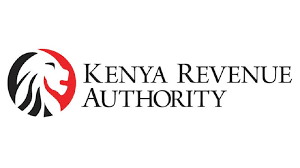Inside taxman’s real-time digital surveillance system

What if your salary, supplier contract, or bank transaction could be tracked by the taxman in real time—with no court oversight? This is no longer fiction in Kenya. Kenya Revenue Authority (KRA) is quietly rolling out one of the most extensive digital surveillance frameworks in the country’s history, integrating its systems with four powerful platforms: iTax, IFMIS, GHRIS, and the Central Bank of Kenya’s payment system.
The goal is direct and deliberate—to tighten tax compliance by tracking payments to civil servants and suppliers as they happen. Through these integrations, KRA will gain live visibility into taxpayer activity. iTax links provide access to individual and corporate tax declarations; IFMIS exposes public procurement and payment trails; GHRIS reveals real-time payroll data; and the CBK platform captures fund disbursements at the source.
According to the KRA Commissioner for Large and Medium Taxpayers, Rispah Simiyu, the system enables instant reconciliation of payments against declared income, sealing gaps that once escaped backend audits. But this is far more than a back-office upgrade. It’s a sweeping transformation with profound implications for financial transparency, privacy rights, and the future of digital governance.
The initiative is nested within the broader Unified Human Resource (UHR) strategy, which assigns unique Unified Payroll Numbers (UPNs) to all public sector employees. This makes it easier for KRA to detect income irregularities, flag undeclared earnings, and automate enforcement. The government aims for full rollout by July 2025, and civil servants must now link their records to UHR to access salaries or benefits.
KRA’s reach, however, extends beyond government workers. Personal Identification Numbers (PINs) are now required for transactions involving land, mobile imports, professional licenses, and supplier contracts. IMEI registration for imported devices is also being enforced, in collaboration with the Communications Authority, to ensure only tax-cleared phones are networked. It’s a full-spectrum sweep of formal activity.
However, as the taxman tightens his grip, concern is growing—particularly among financial institutions. Major banks, represented by the Kenya Bankers Association, are resisting KRA’s push to integrate directly with their systems. They argue this would grant the tax authority unchecked access to customer accounts, risking data breaches and undermining constitutional rights to privacy. “We support tax enforcement, but not at the cost of eroding trust in the financial system,” one senior banker said
The resistance has triggered a broader debate on the legality of KRA’s data practices. In 2024, the National Treasury had proposed amendments to the Data Protection Act, 2019, that would allow state agencies—including KRA—to access personal data without court orders. If passed, KRA would be able to extract information on property, bank balances, and mobile activity without consent or judicial scrutiny.
Data privacy experts warn this opens the door to state overreach. “Empowering the taxman to act as judge, jury, and executioner without oversight sets a dangerous precedent for governance in Kenya’s digital future,” notes Winnie Ngige, Privacy and Data Protection Specialist at International Association of Privacy Professionals. Her concerns echo those of civil liberties groups who argue that such access, without checks and balances, could lead to abuse or political misuse. Indeed, the issue is no longer just about taxes—it’s about the architecture of digital power in Kenya. Once such systems are entrenched, critics argue, mission creep becomes inevitable. What begins as financial oversight can easily evolve into political profiling, social surveillance, or targeted harassment of dissenters.
Tracy Odipo, a global privacy and digital policy lawyer at PricewaterhouseCoopers (PwC) puts it bluntly: “Who audits the taxman? If we normalise unrestricted surveillance today in the name of compliance, we risk building a state that trades liberty for control. Kenya must be careful not to swap one form of dysfunction for another.”
To be clear, KRA’s reforms are not without merit. Kenya’s tax base is narrow, evasion is rife, and public revenues are under pressure. The 2025 Budget Policy Statement outlines ambitions to surpass Sh4 trillion in annual collections, largely by closing gaps through automation. Digitisation, if implemented transparently and ethically, can plug leakages, reduce corruption, and simplify tax administration.
But efficiency cannot be allowed to trample constitutional rights. Governance by algorithm must still be governed by law. As KRA expands its digital dragnet, Kenya finds itself at a decisive moment. Will we build a smarter tax system rooted in consent, fairness, and trust? Or will we slide into a surveillance state cloaked in fiscal responsibility—one where rights shrink quietly behind the screens of unaccountable software?
The real issue is not whether KRA should be smarter. It is how much power it should wield—and who watches the taxman while he watches us all. Kenya must decide: Will this be a tax revolution—or a Trojan horse?
-The Writer is a Data Scientist at UNEP and an AI and Climate Policy Strategist-















